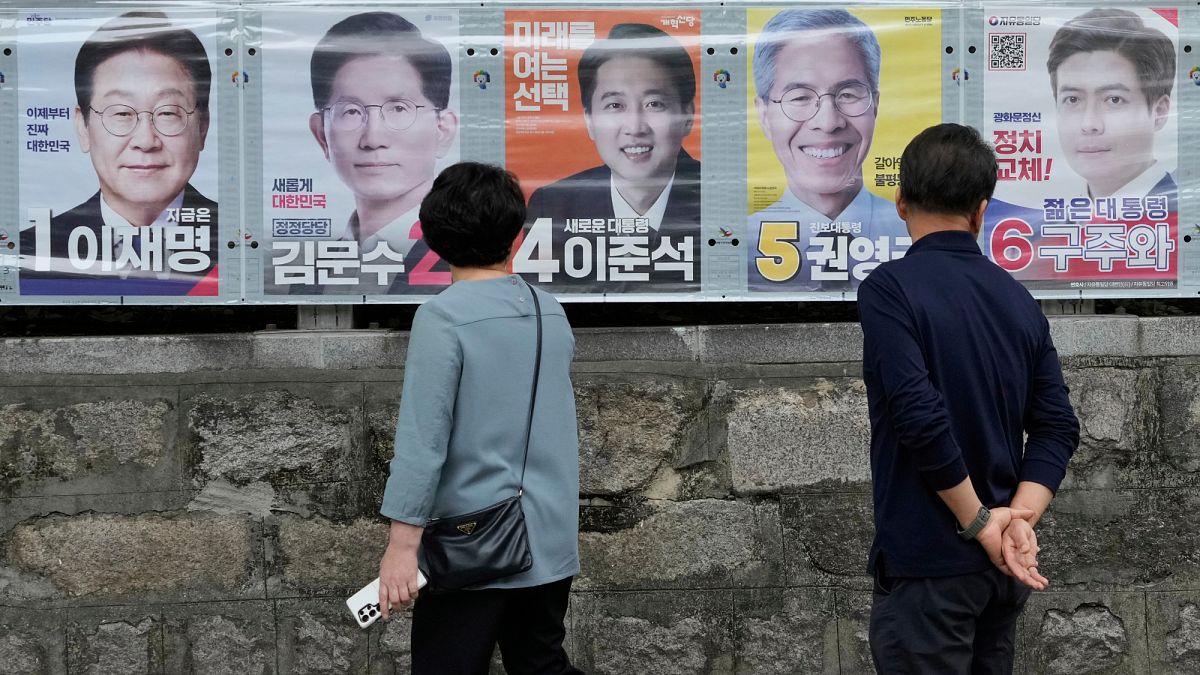South Koreans will head to the polls on Tuesday in a snap presidential election following the removal from office of previous leader Yoon Suk-yeol, who was ousted over his brief but disastrous declaration of martial law in December.
Around 44 million South Koreans are expected to vote, including the some 258,254 Koreans living abroad, according to media reports.
There are six candidates on the ballot, but the liberal frontrunner and former human rights lawyer, Lee Jae-myung of the Democratic Party of Korea, is widely tipped to win, mainly due to public discontent with Yoon’s actions.
Additionally, a series of Gallup Korea polls last week showed Lee commanding between 46-49% support, well ahead of rival Kim Moon-soo of the conservative People Power Party, who is trailing with 35-37% support.
He previously led efforts to impeach Yoon and has pledged to hold those responsible for the martial law decree to account.
Kim, a former labour minister under Yoon, has struggled to gain traction, partly due to his reluctance to criticise the disgraced former president.
The winner will be sworn in on Wednesday, with no transition period and will serve for a single term of five years.
Challenges ahead
The next president will immediately face challenges including strained domestic unity, renewed global trade tensions with the US and the continued threat from North Korea’s expanding nuclear programme.
While past elections have focused heavily on North Korea, this year’s campaign has been dominated by political slander and concern over the fallout from Yoon’s leadership.
Candidates have exchanged insults and personal attacks have frequently overshadowed policy proposals.
On a televised debate last week, Lee called Kim “Yoon Suk-yeol’s avatar,” and Kim said that Lee was a “harbinger of monster politics and dictatorship.”
In addition to political divisions, the new leader must also respond quickly to US President Donald Trump’s “America First” trade policy.
Trump’s global tariff pause expires on 9 July, potentially exposing South Korean exports to 25% duties.
Lee has criticised the outgoing administration’s rush to strike a trade deal, while Kim has promised to engage with Trump directly to secure South Korea’s economic interests.
Both candidates share a cautious view of North Korea, with Lee signalling openness to talks but admitting that a “summit with Kim Jong-un won’t happen any time soon.”
Kim, meanwhile, vows to strengthen the military and maintain a firm stance.
The country remains deeply polarised. Yoon’s supporters continue to claim election fraud and accuse Lee’s camp of subverting the state.
Yoon has accused Lee’s party of being “anti-state” that exploits their parliamentary majority to obstruct his plans.
Lee has promised reconciliation if elected, but critics fear political retribution may follow, especially as Yoon faces trial for rebellion, a charge that carries the death penalty.
Polls open at 6am on Tuesday morning.

